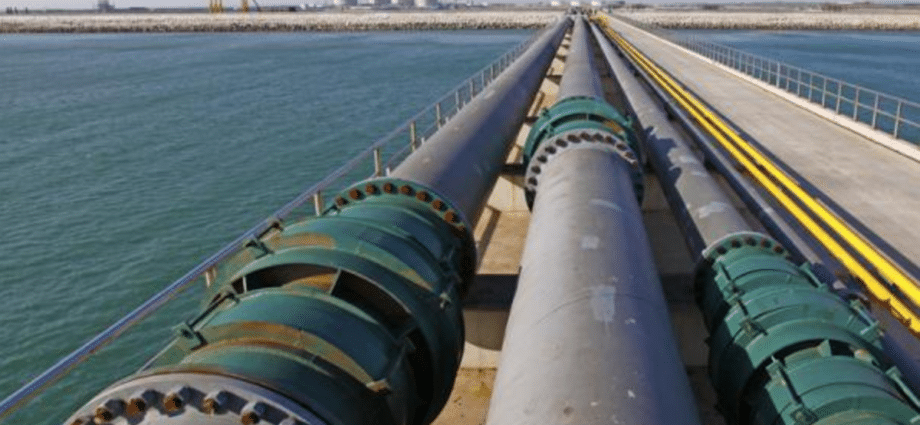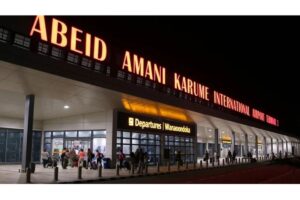Dar es Salaam. A contractor has been selected to conduct a feasibility study ahead of the planned expansion of the Tanzania–Zambia Crude Oil Pipeline, which is also known as the Tazama Pipeline.
Tazama Pipelines Limited is looking to upgrade the pipeline, which was built in built in 1968, to a modern one that will be capable of transporting five million tonnes of crude oil per year.
Expansion of the pipeline, which transports crude oil from Dar es Salaam to Ndola, Zambia, comes as a response to the current economic needs of the two countries, considering that the existing one is capable of only transporting 800,000 tonnes of oil annually.
Speaking on the sidelines of an event where Tazama Pipelines Limited presented a cheque of Sh4.35 billion as its dividend to the government of Tanzania, the firm’s managing director, Mr Davison Thawethe, said the actual amount required to build the pipeline will be determined after the study.
“We have commissioned a company Norplan to do the feasibility study of the 1710-km pipeline. The company will start its task any day from now to determine, among others, how much the pipeline will cost,” he said.
He noted that the decision to construct a new one is to support economic growth.
“The demand for petroleum products has increased, and we aim to meet the demand,” he said.
Speaking after receiving the dividend, the Deputy Prime Minister and Minister of Energy, Dr Doto Biteko, said the energy ministries of Tanzania and Zambia were in talks aimed at increasing investment in the Tazama Pipeline.
The discussions, he said, were focused on expanding the oil pipeline from 8 inches to 12 inches, enabling it to transport a greater volume of oil to Zambia and other neighbouring countries.
“The purpose of this investment is to reduce costs for fuel station owners in the areas where the pipeline passes. In addition to the expansion, we also expect to begin the construction of a new 24-inch pipeline, which is currently in the procurement stage before implementation starts,” said Dr Biteko.
He said the aim is to reduce the use of trucks for transporting oil and encourage more people to use the pipeline to collect oil at certain stations that will be established in the relevant regions.
“Our goal is for the oil that is currently transported to southern regions by trucks to be transported via the pipeline,” said Dr Biteko.
He said that doing so aims to ensure that Tanzanians get oil at affordable prices, as transportation costs are among the factors contributing to the increase in retail fuel prices.
Additionally, this initiative will help protect roads from rapid deterioration due to transportation by trucks.
Speaking about the dividend, Dr Biteko said it is a positive step that is encouraging.
He noted that when President Samia Suluhu Hassan visited Zambia, one of the directives she gave was to ensure that projects jointly implemented by the two countries are well-managed to bring benefits.
“These projects should also contribute to improving people’s lives and their conditions, and because we had not received a dividend since 2019, I called them and asked, and they promised to bring the money, which they have done today,” said Dr Biteko.
The chairman of the Tazama Pipelines Limited board, Mr Peter Mumba, said the dividend is a result of the good performance they have witnessed despite some challenges they have faced.
“This has improved our service delivery; these efforts have not only enhanced our customer service but also our financial capacity,” he said.
Speaking on behalf of the institution, Treasury Registrar Nehemia Mchechu said Tazama was established 58 years ago and if it were a person, it would have only two years left before retirement.
He said that at that age, a person would typically be tired, but Tazama is different as it is just beginning to rise and gain significant strength at this age.
“The government, aside from the period in 2019, had 15 years during which shareholders did not receive dividends, but the reforms closely overseen by the two nations’ representatives are what are bringing about these changes,” Mr Mchechu said.
He added that these funds will be used to implement various development projects as directed.















